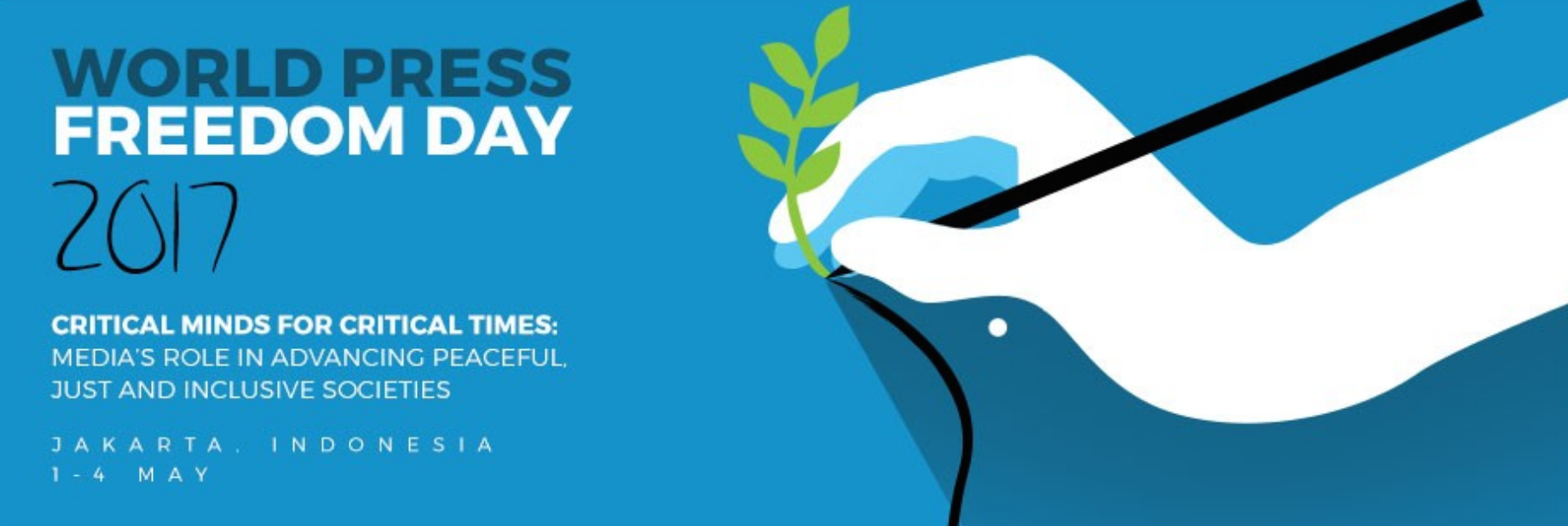
At the 2017 UNESCO World Press Freedom Day celebrations in Jakarta on May 1-4, close attention was paid to the need to address threats against the safety of journalists. The issues involved have captured a good deal of attention at international and regional levels, with the adoption of a series of Resolutions at the UN and the 2030 Development Agenda. There was a strong consensus that the complex task of protecting journalists from violence and abuse requires a holistic approach that brings together a range of expertise and professional disciplines to achieve real policy results and concerted action for protection.
At the parallel academic side event on journalism safety in Jakarta, speakers emphasised the important contribution that academia can make by providing knowledge-based research and evidence on which to base initiatives to strengthen the effective protections for journalists against multiple forms of attack and obstruction.
Frank La Rue, Assistant Director-General in Communication and Information at UNESCO, underlined the importance of developing the conceptual framework needed to keep policies in line with changing times. The rise in the use of terms such as ‘fake news’ and ‘a post truth society’ has had the effect of discrediting the work of professional journalists, and should be contested, La Rue argued.
In her keynote speech Agnès Callamard, the UN Rapporteur on extrajudicial, summary or arbitrary executions reasoned that hostilities towards journalists must be understood in relation to a declining respect for the human rights framework more broadly. At a time when the value of human rights is being question by political leaders across the world it is crucial, she argued, that academics work to provide a critical framing that can challenge such trends, and set a bold and independent research agenda.
Participants discussed numerous examples of interdisciplinary exchanges and collaborative approaches to examining problems of journalism safety that draw on expertise from a range of stakeholders.
One such example is the Journalism Safety Research Network (JSRN) launched by the Centre for Freedom of the Media (CFOM) with the support of UNESCO during the 2016 WPFD celebrations in Helsinki. Over the past year the initiative has connected over 90 researchers from across the world to create a network for exchange and cross-fertilisation of ideas and research in the field of safety and impunity.
On an initiative by Silvia Chocarro, IFEX Global Advocacy Strategist and CFOM member, members of the JSRN network as well as other academics and civil society organisations, including Committee to Protect Journalists, presented a joint proposal to include an explicit reference to the role of academic institutions and research in the Jakarta Declaration.
As a result, paragraph 47 was included in the Jakarta Declaration of May 4, which stands as a summary of the work of the WPFD conference. It calls on UNESCO to:
‘Strengthen its collaboration with academic and other similar institutions to enhance research in and understanding of freedom of expression and media development issues, including by making use of the Journalism Safety Research Network to reach a wider range of relevant institutions and researchers’
